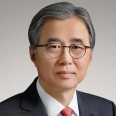The inauguration of President-elect Donald Trump’s second administration is expected to see many changes in U.S. policy, among which U.S. North Korea policy is concerning. President-elect Trump stated in a recent interview with Time Magazine that, “I know Kim Jong Un, I get along very well with Kim Jong Un. I’m probably the only one he’s ever really dealt with.” President-elect Trump also stated in his acceptance speech for the Republican presidential nomination in July that, “It’s nice to get along with someone who has a lot of nuclear weapons.”
The reason why a meeting between President-elect Trump and Kim Jong Un is worrisome is because of the experience in U.S.-North Korea negotiations. Following the Singapore summit with Kim Jong Un in June 2018, President Trump announced the suspension of ROK-U.S. joint exercises without consulting with South Korea. It is difficult to predict what the consequences will be if he meets Kim Jong Un again. From the U.S. perspective, it can be considered a success to limit North Korea’s intercontinental ballistic missile (ICBM) capabilities that threaten the continental United States.
It would be good if the United States could resolve issues through dialogue with North Korea, but experience so far has shown that it will only buy North Korea time to advance its nuclear capabilities. While it is nice for the United States and North Korea to meet, it is important to reflect on the outcome of the last three summits starting from 2018. The three summits have been used to make North Korea’s nuclear weapons a fait accompli and consolidate the legitimacy of Kim Jong Un’s power. Kim Jong Un is using the fact that President-elect Trump wants to meet for domestic political gain. According to the Bank of Korea, North Korea’s gross national income (GNI) per capita in 2023 was 1.59 million won, which is one-thirtieth of that of South Korea. According to UN data from 2022, North Korea’s per capita GDP was $590, which ranks 203rd out of 212 countries, among the lowest in the world. With North Korea’s nuclear arsenal functioning as Kim Jong Un’s governing tool, Kim Jong Un is trying to divert complaints from North Koreans externally through U.S.-North Korea dialogue.
Given the constraints faced by the Biden administration, which was criticized for failing to prevent North Korea from advancing its nuclear capabilities, one cannot simply criticize President-elect Trump’s idea of resolving the problem through meetings and dialogue with North Korea in any shape or form. It will be desirable if the efforts of the second Trump administration are made based on close cooperation and coordination with South Korea. South Korea and the United States should share what their ”desired end goal” is regarding the state of the North Korean nuclear threat, the assessment of the current state of North Korea-China and North Korea-Russia relations, and the resolution of the Korean Peninsula issue. Only then can South Korea prevent North Korea from using U.S.-North Korea negotiations to drive a wedge between the ROK-U.S. alliance and from continuously deceiving the United States behind the scenes during these talks. That is in the best interest of both South Korea and the United States. President-elect Trump should first meet with South Korea before thinking about sitting down for talks with North Korea.
In 1991, U.S. President George H.W. Bush withdrew 1,200 tactical nuclear weapons deployed in the Pacific, including a hundred from South Korea. However, North Korea’s nuclear armament has advanced to the present, so 20 to 30 of those tactical nuclear weapons should be considered for redeployment. Nuclear weapons are political weapons that can instill fear in an adversary even just by their possession. The redeployment of tactical nuclear weapons is necessary because unseen U.S. nuclear submarines or nuclear-powered aircraft carriers cannot serve as political weapons.
The intention of getting along well with Kim Jong Un is commendable, but it is hoped that President-elect Trump realizes that a clear message can be delivered to Kim Jong Un only when ROK-U.S. cooperation is robust.
* The view expressed herein was published on December 24 in The Munhwa Ilbo and does not necessarily reflect the views of The Asan Institute for Policy Studies

 Facebook
Facebook Twitter
Twitter